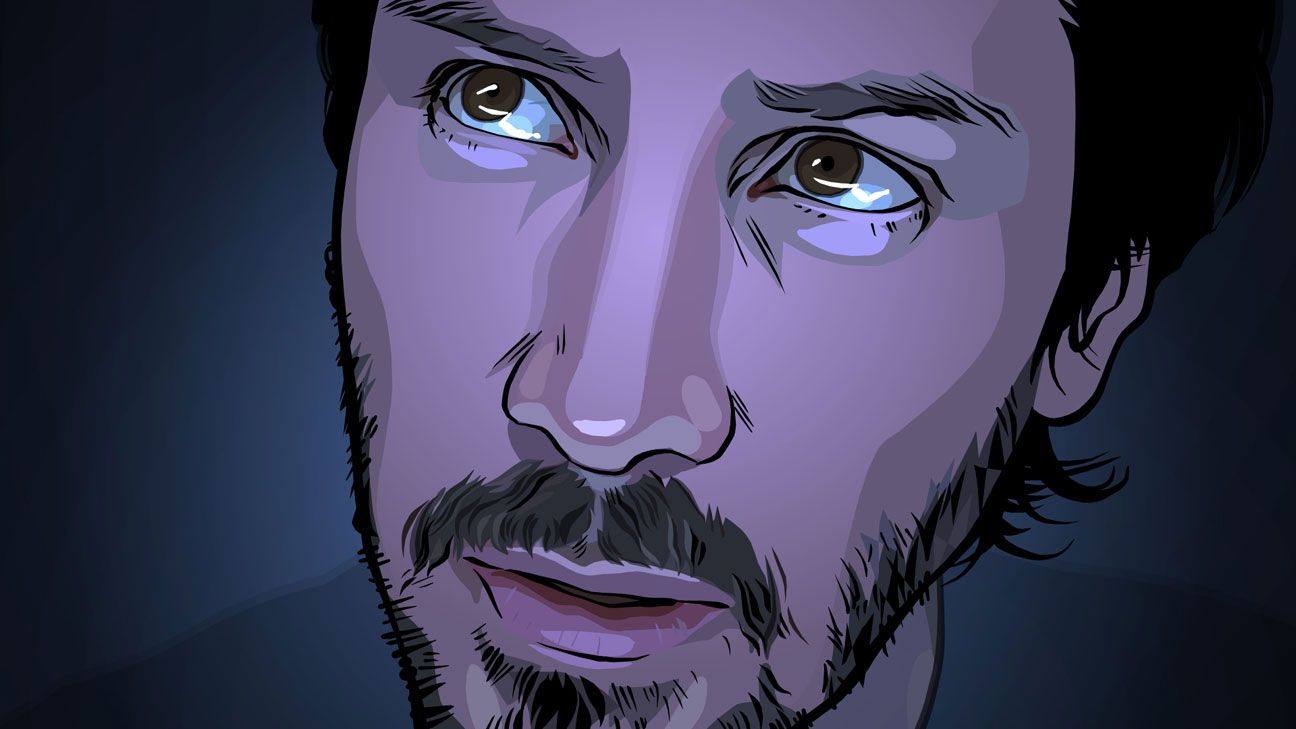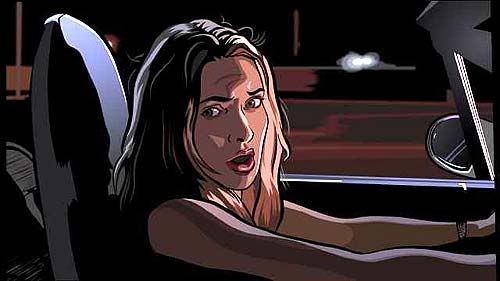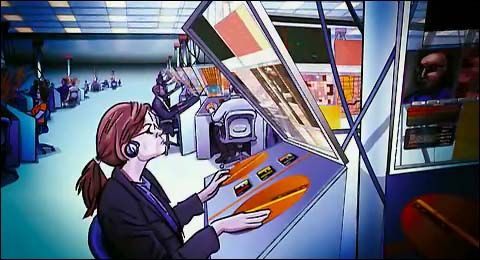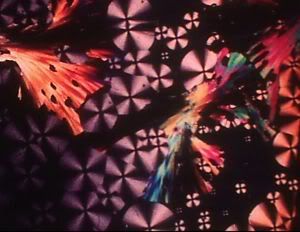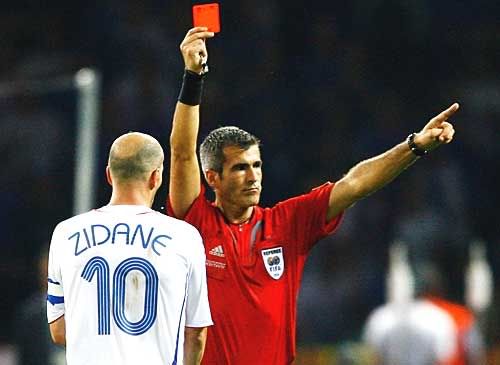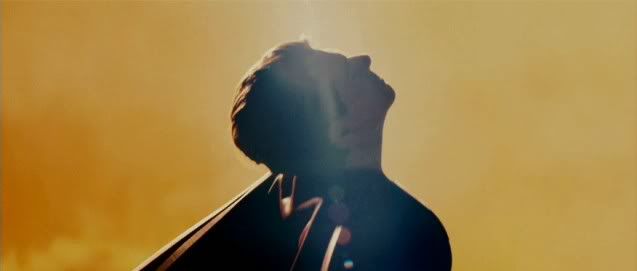Miami Vice
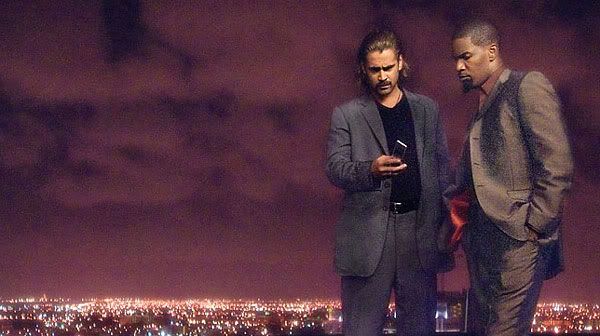
by Ryland Walker Knight
My admiration for Michael Mann has nothing to do with his TV history and the show that spawned his often brilliant (but uneven) career and this new often breathtaking (but muddled) film version: it's all about his movie making. And from what I hear, the show was so great because it was so cinematic. No wonder he broadened his canvass. Mann's got out of bounds visual skills, lofty aims and he knows how to show off. Often those lofty aims get in the way of compelling subject matter (ALI) but more often than not you'll hear people complain about his Mamet-lite approach to dialogue or a prediliction for style over substance. Or that he keeps retelling the same story. At least it's a compelling story. A story full of guns and sex and adrenaline, even existentialism.
MIAMI VICE, the movie, has the weakest, skeletal (though still convoluted and tangential) screenplay of his crime pictures but by and large the strongest, boldest visuals. Employing a high definition digital camera that gives each shot unbelievable depth of field, every composition is a pleasure to behold. With nothing to rival the pristine comic book beauty of SUPERMAN RETURNS' mythic allusions, Mann's world is rather the flip side, all grain and rain, an insane tactile experience. There's a lot of distant thunder and lightning just visible off the edges of the frames you can't ignore. You feel the cloud cover, you dodge the bullets, too.
Without any credits we're not invited into the movie but thrown, head first, into what I'm assuming is a typical Miami club pounding the new theme song, that hideously catchy ditty by Jay-Z and Linkin Park. Dancing, drinking, flirting and staking out a Caribean pimp--typical Vice activity for our new Crockett & Tubbs. Only, now they go by their first names, Sonny & Rico, and Sonny actually wears shirts with buttons, and a handlebar mustache. Why? It's fresh, it's oddly hip, it's badass. Mann's movies are usually badass, all alpha males with issues and guns. (Even Hawkeye, the indiginous hero from LAST OF THE MOHICANS has a gun.) And this movie has some brutal guns, if not subtle issues; in fact, nothing is subtle and that's just fine. As Rico warns middleman heavy José Yero (a smarmy John Ortiz), there's a lot of Jackson Pollock blood on the walls. Except there isn't really that much bloody action: rather, the action we're given(?) is brief and infrequent, yet visceral, punctuated by the deafening sound design and those splatter sites.
Is that the vice a summer movie is supposed to supply? To some degree, yes, and those set pieces certainly deliver. But Mann's lofty aims are bullseyed on that recurring theme of duality across the line of the law. These guys spend most of their time acting as crooks working crooked jobs importing drugs and occasionally killing people. But its dramatic asperations are not followed through on, so, its sobreity fails the vice side of a popcorn flick: the violence is realisticly horrific in its severity and, as such, not quite entertainment. Yet I still find it more engaging (worthwhile?) than that critic's darling PIRATES 2. Mann knows exactly what he's doing when it comes to staging a battle or mapping out a tense raid on a hideout, however, he forgot to write a compelling plot to go along with the action. And there's this romance subplot I haven't mentioned yet.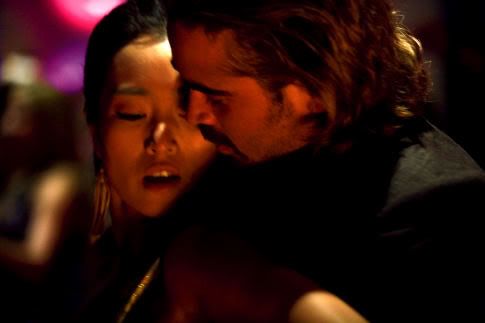
Gong Li is a fine actress and she does her best with our unruly language but most of her dialogue is lost to her limiting accent. Not that she's unappealing because of it, nor does it really matter given her slight, plot-element characterization--instead, it renders the exchanges between her Isabella and Colin Farrell's Sonny naive and phony. The actors use their eyes and pauses (aided by the editing team, no doubt) to sell their obvious physical chemistry as emotional compatibility for the most part despite their forgettable dialogue. The sex scenes help, too. What's most unfortunate about the romance subplot is its predictability--involving Isabella's ties (business and pleasure) to the drug czar our Vice boys are targetting--and diversion from the already complicated plot.
More convincing, if tenuously so, are Jaime Foxx & Naomie Harris as Rico and Trudy. Their equally sexy love scene is the only time Foxx uses his comedic gifts to flesh out his wooden, constricted role--and performance--while Harris exudes charm throughout, leavening the mood when allowed. Mann is clearly fascinated by how these uber macho men balance home and work but these relationships are routine movie romance in their slight approximations of the soul. But, as I said before, here it's more about the men and their dirty work than their failed loves. This premise simply cannot support what Mann himself so deftly balanced in HEAT & THIEF: its purpose is the gritty action.
Which is why the movie is ultimately a let down. There's a lot of smart filmmaking and beautiful images yet with its flimsy script and isolated action scenes it cannot hope to hold up 20 years later. But, as marketing has proven, that doesn't really matter when there's money to be made. It just helps to have Michael Mann directing traffic and bullets. When the snipers tore that car to pieces you felt like your arm flew off, too, didn't you?
02006: 146 minutes: dir. by Michael Mann: written by Mann, based on characters created by Anthony Yerkovich

